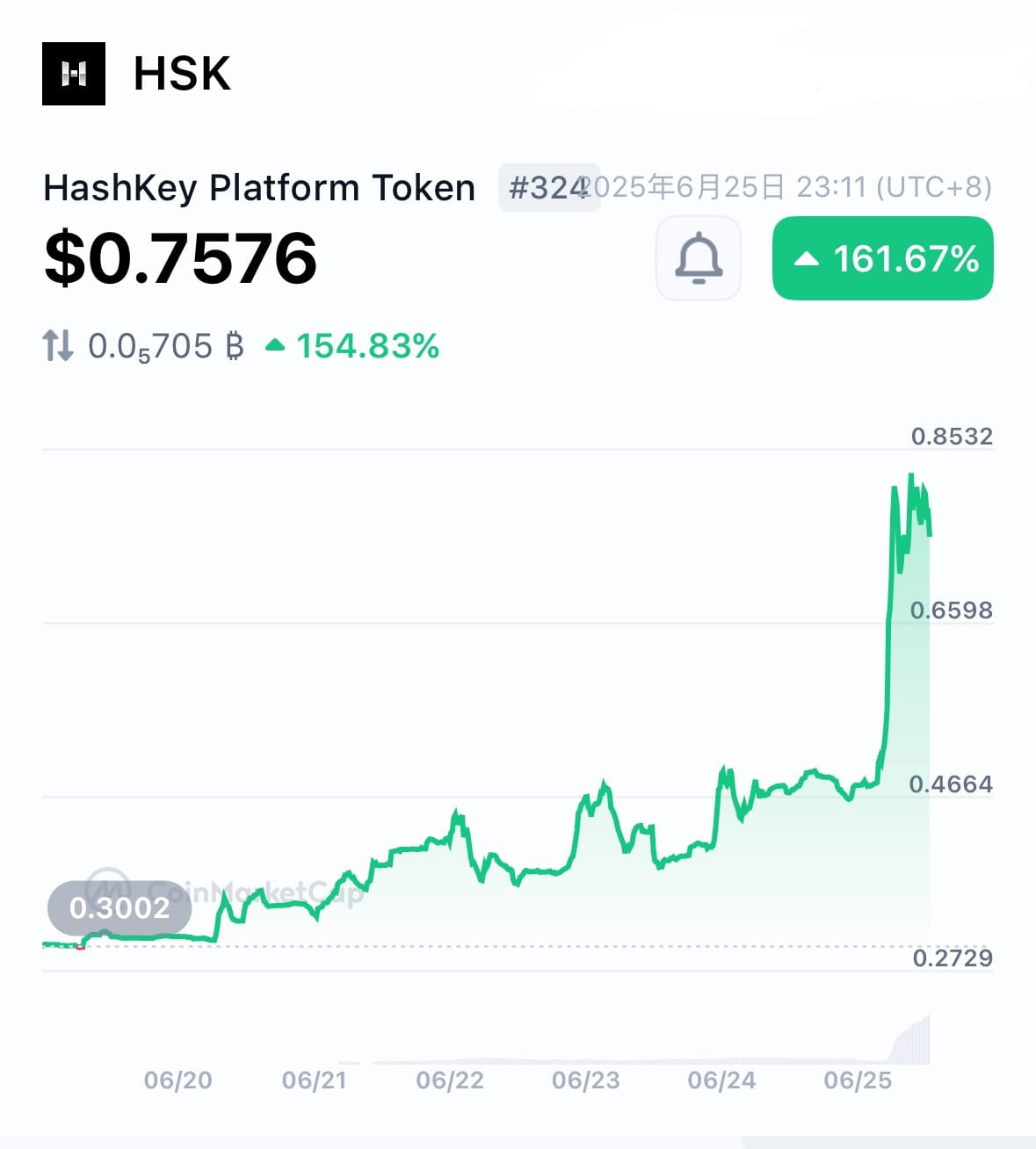How should a compliant exchange operate?
According to data, in 2024 Coinbase:
The total number of users is 105 million, with approximately 55% coming from the United States.
Institutional clients contribute 82.05% to the total transaction volume, while retail users only account for 17.95%.
By currency type, Bitcoin and Ethereum account for 44% of the transaction volume.
Summary: Mainly serving American users, institutions account for a large portion of transaction volume, and mainstream coins remain the primary trading assets on the platform.
In contrast, Hashkey exchange, which is also a compliant exchange with a strong background, has encountered several difficulties, including:
Market limitations: HashKey mainly serves local users in Hong Kong, with limited market capacity.
Globalization attempt: HashKey Global will be launched in 2024 to expand into international markets, but it is starting late and faces fierce competition from established platforms like Coinbase and Binance.
Limited service scope: Due to strict compliance requirements, HashKey's products and services are highly targeted but have a narrow coverage.
Highlights: OTC business
HashKey's over-the-counter (OTC) business performs outstandingly, supporting seamless trading of over 10 fiat currencies and more than 60 cryptocurrencies, with transaction volume exceeding $5 billion in 2024, becoming its pillar revenue source.
The risk of a single business line lies in an unbalanced revenue structure. Can HashKey explore a diversified business model to achieve long-term growth? There is indeed potential.
On May 7, 2025, Futu Securities International officially launched Bitcoin, Ethereum, and USDT deposit services, supporting cryptocurrency trading services for compliant investors.
On June 24, 2025, Guotai Junan International was officially approved by the Hong Kong Securities and Futures Commission to provide virtual asset trading services.
According to reports, Guotai Junan and Futu entered the crypto market using a brokerage intermediary model, with underlying technology supported by HashKey. This means that the two platforms do not directly develop cryptocurrency trading platforms, but act as intermediaries, relying on existing platforms and interfaces to provide customers with cryptocurrency trading services.
In fact, the two brokerages have become 'distributors' for HashKey, as both Guotai Junan and Futu hold VASP licenses, while only HashKey has a VATP license. The underlying liquidity for VASP depends on VATP support, so the trades of users on their platforms ultimately flow to HashKey.
The explosive point is:
Currently, several brokerages are striving to complete license upgrades to enter the cryptocurrency trading market. Their operational model is also a non-proprietary 'distributive' exchange, while HashKey is far ahead in this market in terms of technical strength, compliance, and brand power, possessing sufficient core competitiveness on the B-end, making it very likely to become the underlying platform for institutions entering the crypto market in the future.
Domestic brokerages and institutions entering the crypto market in the future will indeed become distribution platforms for Hashkey. Additionally, the official launch of the 'Cross-Border Payment' from Hong Kong to mainland China releases positive signals at the policy level. It's no wonder that $HSK rose 160% in a week.
